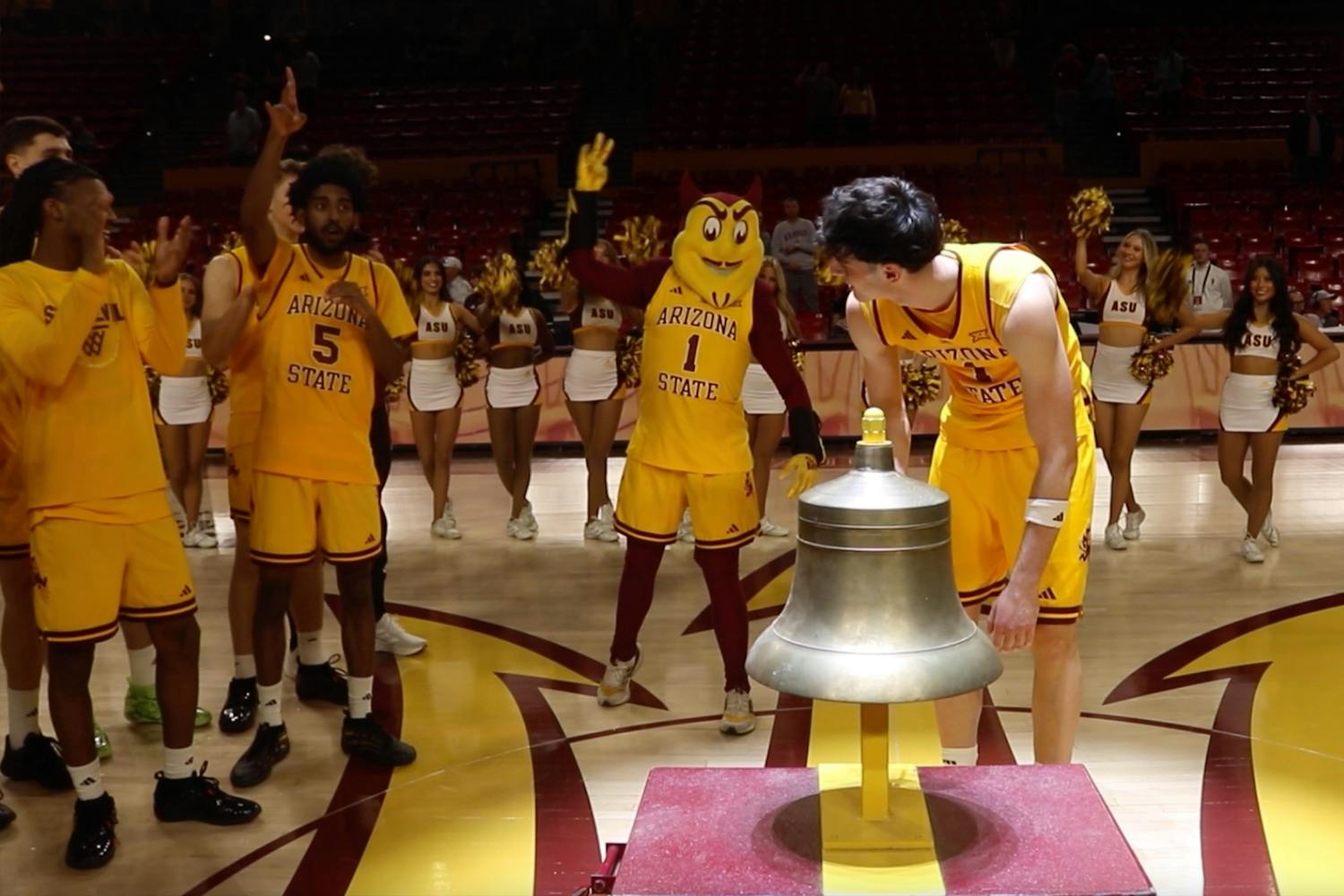You might remember getting a phone call from a military recruiter telling you the benefits of joining the armed forces before you graduated high school. But if you graduated before 2004 in the Valley, you missed Terry Hughes telling you why you shouldn't.
According to Hughes, a former fine arts major at ASU and one of the organizers behind the Valley's Counter Recruitment Coalition, the problem goes back to President Bush's No Child Left Behind (NCLB) Act of 2001.
He says discussions about the act missed the most disturbing part -- a tiny segment within the 670-page long document requiring high schools to provide all of their students' personal information to military recruiters.
Though students can have their parents sign opt-out forms requiring the school to withhold their information, many schools don't publicize the availability of the forms, Hughes says.
Hughes adds that many schools allow military recruiters to take students away from time in class, in addition to presenting at school functions and running gym classes.
"The worst part is there's no alternative point of view offered," Hughes says.
Between the ready cooperation of school officials and the military's $4 billion recruitment budget, Hughes says that the military has unfair access to the nation's youth, especially the poor and minorities.
He adds that some of the recruiters haven't even had military experience themselves, and calls them salesmen who don't care about the students.
While it's true some recruiters don't have military experience, the process of hiring recruiters is complicated -- something that "the general public wouldn't understand," Capt. Mike Mitchell says.
Mitchell, a recruitment officer at ASU, has served in the military for nine years. After leaving the service to work for Johnson & Johnson, he says he came back to serve his country because he found private sector work unfulfilling.
A discussion with fellow community activists spurred Hughes to try and do something about the lack of alternative viewpoints.
"A lot of people in the peace community [anti-war movement] don't think about the soldiers in the war," he says. "I think that on a human-to-human level, we should be trying to help people realize why they shouldn't join the military."
Hughes brought the counter-recruitment movement, which he says has been growing nationwide, to Arizona two years ago. Since then, he has visited high schools across the Valley, handing out fliers and talking to students about why he thinks joining the military is a bad choice.
Mitchell says that to his knowledge, there has been no drop in recruitment as a result of any counter-recruitment and hadn't even heard of it until recently.
To dissuade students from joining, Hughes says he mentions that the military has not taken care of soldiers with Gulf War Syndrome -- a hotly debated illness suffered by many Gulf War veterans who claim it came from exposure to chemicals during the war. He also talks about the way lack of support for soldiers who return from Iraq with post-traumatic stress disorder.
According to Mitchell, Hughes' facts are wrong, and his complaints misdirected.
"The military doesn't deal with veterans," he says. "That's the responsibility of the Veteran's Administration."
Mitchell also said there are no medical studies that definitively prove the existence of Gulf War Syndrome, and that Hughes' accusations of targeted minority recruitment are off base.
The bottom line, Mitchell says, is that the military offers people a chance out of an otherwise unpromising future. He says the fact that there more minorities are in the military than white people is an education issue, and not the result of targeted recruitment.
"Our goal is to have a military that represents the American population," he says.
Although Hughes says a draft is highly unlikely, his organization also helps people of any age prepare a conscientious objector profile, which usually includes essays written against the war or pictures at war protests.
Hughes says he teaches students that recruiters might fail to describe the negative aspects of war, and the contract signed by recruits contains a clause saying the military is not accountable for anything recruiters promise.
The fine print isn't unusual, according to Mitchell.
"That sort of catch-all clause is standard in any sort of contract," he says.
He adds that any recruits who haven't been given what they were promised can quit during training with no strings attached.
Mitchell says the military is working to improve the life of its soldiers, with plans to increase the amount of time spent at one deployment, and help more soldiers become homeowners.
"We don't want people who aren't motivated to serve their country," he says.
Reach the reporter at benjamin.horowitz@asu.edu.




